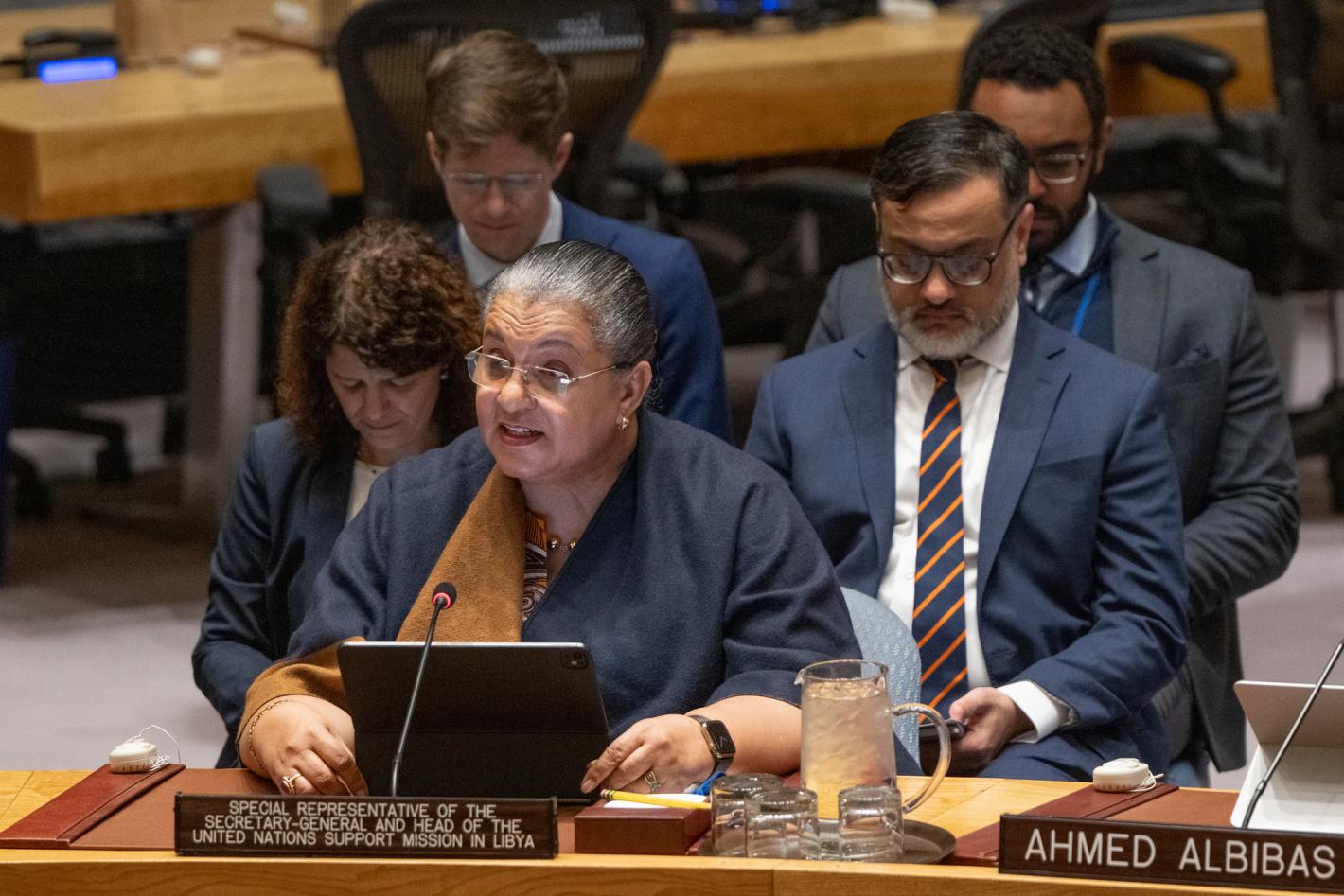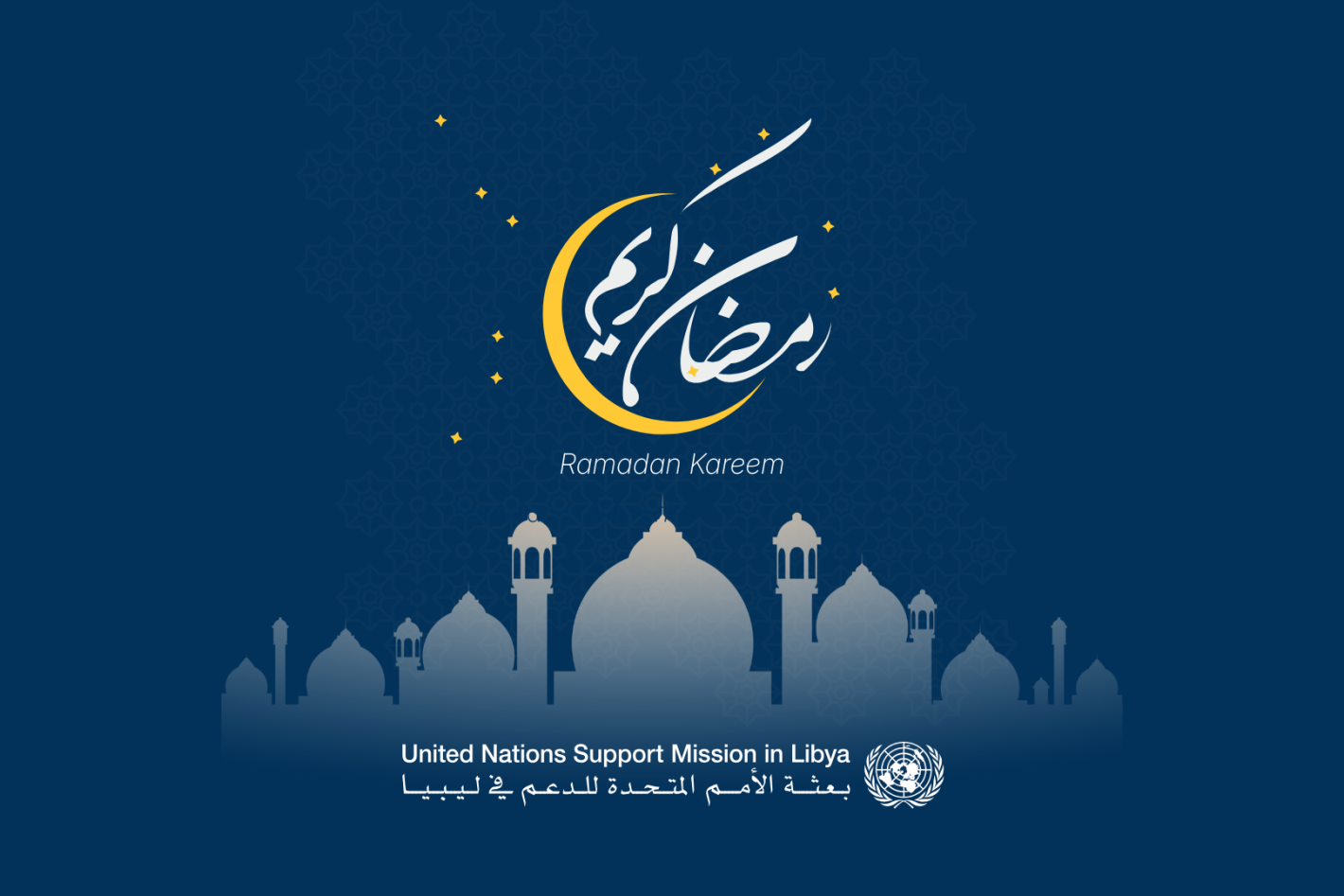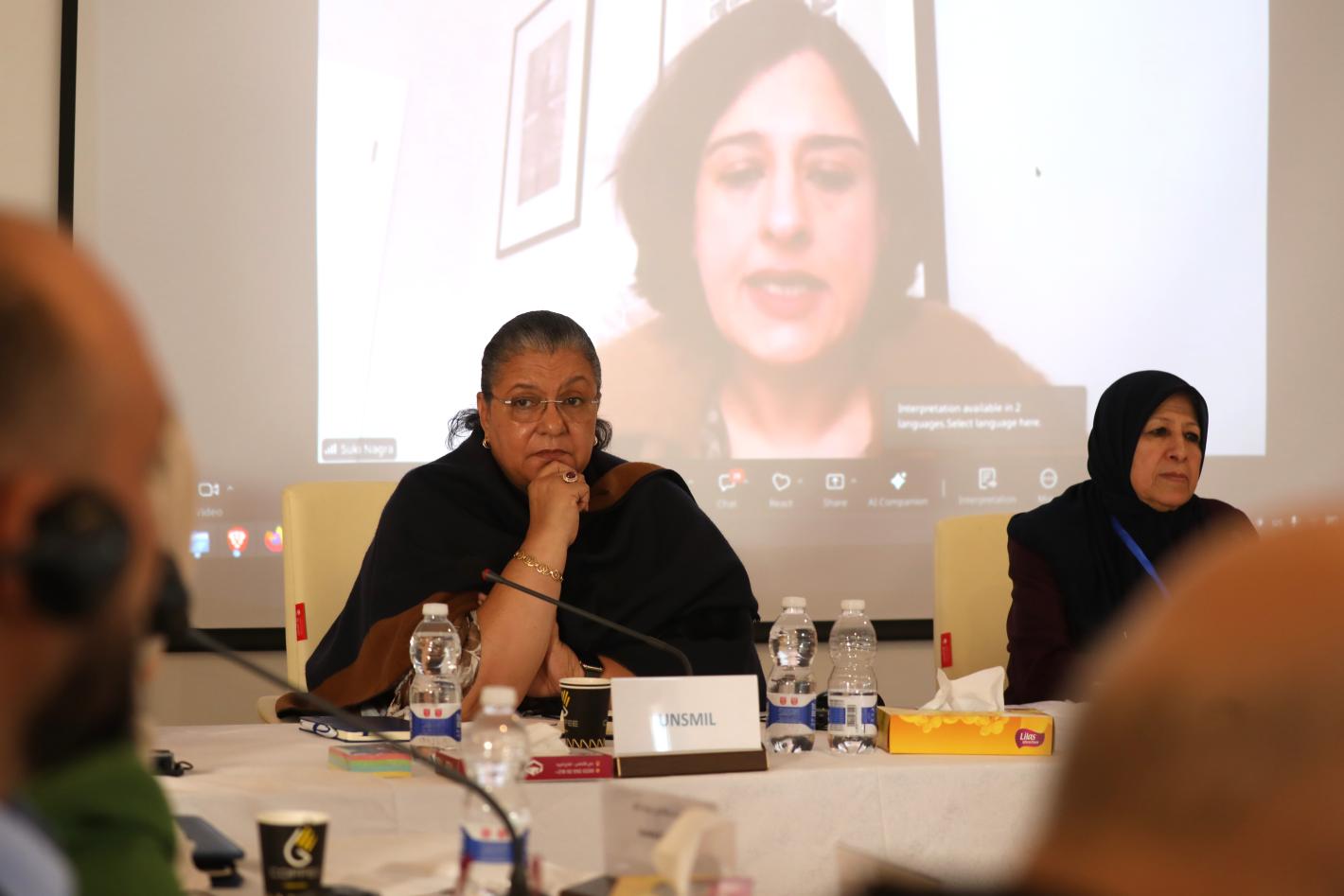ليس بمقدور أي دولة إجراء إصلاح فعال وناجع لقطاع الأمن بمفردها. فهنالك جهات فاعلة في المجتمع المدني يمكنها الاضطلاع بدور هام باعتبارها صوتا لعامة الناس، وطرفا يراقب التأثيرات المحتملة لذلك الإصلاح على الشباب والنساء، وحقوق الإنسان، والبيئة، وغيرها.
بناءً على هذه القناعة، تعمل بعثة الأمم المتحدة للدعم في ليبيا على رفع مستوى الوعي بضرورة إصلاح إدارة قطاع الأمن بين الجهات الفاعلة في المجتمع المدني، وعلى تحديد المجالات التي يمكن للبعثة تقديم الدعم فيها.
وقد أُعطيت إشارة الانطلاق من خلال ورشة عمل عقدتها بعثة الأمم المتحدة للدعم في ليبيا، بمشاركة رئيسة "القدرة الدائمة للأمم المتحدة لإصلاح قطاع الأمن"، في فبراير الماضي بطرابلس، مع اثنتي عشرة (12) منظمة مجتمع مدني ليبية، وذلك لمناقشة التحديات التي تواجه إصلاح قطاع الأمن في ليبيا، والتعريف بدور الأمم المتحدة، وتبادل الأفكار حول أنجع السبل لتعزيز مساهمة المجتمع المدني في هذا الإصلاح.
وأوضحت رئيسة "القدرة الدائمة للأمم المتحدة لإصلاح قطاع الأمن"، مباكو فولنغ، أن "دور الأمم المتحدة والمجتمع الدولي هو دعم إصلاح قطاع الأمن، وليس تنفيذه"، مؤكدة أن "الملكية الوطنية للإصلاح هي أوسع من ملكية الحكومة، رغم أنهما متداخلتان، ومن ملكية الوزارة. الملكية الوطنية هي كل ذلك بالإضافة إلى ملكية المجتمع المدني ".
ولضمان ابتعاد المؤسسات الأمنية عن أساليب القمع، وانخراطها بدل ذلك في توفير الحماية وفقاً لمبادئ الحكم الرشيد، تؤكد فولنغ على ضرورة "إخضاع تلك المؤسسات لعدة ضوابط، بما في ذلك الرقابة الداخلية، والرقابة التشريعية، والمراجعة القضائية، ورقابة المجتمع المدني".
ويعمل المجتمع المدني كحلقة وصل بين الحكومة والأفراد.
وتعتبر فولنغ أن التدريب وتوفير المعدات ليسا في حد ذاتهما مرادفين للإصلاح. "يمكنك تدريب وتجهيز مؤسسة اليوم فقط لتنتهك حقوق السكان غدًا. لهذا يجب على المجتمع المدني الحفاظ على قنوات الحوار مفتوحة مع قطاع الأمن سعياً وراء التحسين المستمر والمساءلة ".
وشاركت فولنغ الدروس المستفادة من مشاركة منظمات المجتمع المدني في إصلاح قطاع الأمن في سياقات أخرى، مثل ليبيريا وسيراليون، واستعرضت مع النشطاء مختلف أدوات الحكم الرشيد الأفريقية التي يمكن استخدامها لمساءلة الجهات الأمنية، مثل "الميثاق الأفريقي بشأن الانتخابات والديمقراطية والحكم"، والقانون التأسيسي للاتحاد الأفريقي.
خلال الورشة، انقسم النشطاء إلى مجموعات لمناقشة تحديات الحوكمة الأمنية في ليبيا، والأولويات الرئيسية لإنجاح إصلاح قطاع الأمن، وسبل التعامل مع هذه التحديات والأولويات من قبل نشطاء المجتمع المدني. وأكد المشاركون على الحاجة إلى وضع رؤية وطنية، والتكامل المؤسسي، وربط إصلاح قطاع الأمن بالجهود المبذولة لاستكمال صياغة الدستور الليبي. كما شددوا على أهمية مشاركة المرأة والشباب.
تقول إحدى المشاركات، ج. س.، إن المنظمة التي ترأسها - وهي منظمة تعنى بحماية وتعزيز حقوق النساء - تعمل بالفعل مع قطاع الأمن، وتنظم اجتماعات مع الجهات الأمنية في طرابلس لمناقشة قضايا جمع السلاح، وفرص إعادة الإدماج في المجتمع.
"نحن قلقون بشأن أمن مجتمعاتنا"، تضيف الناشطة، "عندما يكون هناك قتال، يضطر الناس إلى مغادرة مساكنهم. المقاتلون يقتحمون المنازل والشوارع ليست آمنة. كل هذه الأشياء تؤثر على النساء وصحتهن ".
وتؤكد ج. س. أن بعض المقاتلين تخلوا بالفعل عن أسلحتهم بعد تفاعلهم مع منظمتها. لكن هناك العديد من التحديات.
من جانبها تشدد ز. م.، الناشطة في مجال حقوق الإنسان بجنوب ليبيا، على أن "ليبيا حديثة العهد بقطاع المجتمع المدني، والجهات الفاعلة في المجتمع المدني بحاجة إلى مزيد من التدريب لفهم دورها في إصلاح قطاع الأمن".
وأعربت الناشطة الليبية عن أسفها لغياب أو ضعف الحماية القانونية للفاعلين في المجتمع المدني في ليبيا، قائلة إن "النشطاء مضطرون للتعامل بحذر شديد خشية التعرض لإجراءات انتقامية خلال توثيقهم للانتهاكات. كما أنه من الصعب إقناع الضحايا بالحديث علنا عن الانتهاكات التي تعرضوا لها".
وأشادت الناشطة الحقوقية بمبادرة بعثة الأمم المتحدة للدعم في ليبيا، الرامية إلى تعزيز مشاركة المجتمع المدني في حوكمة قطاع الأمن، معتبرة إياها "مهمة لبناء هذا القطاع الناشئ، والمساعدة في ضمان اتباع مقاربة ترتكز إلى مبادئ وقيم حقوق الإنسان".
في نهاية ورشة العمل، وافقت منظمات المجتمع المدني على تنظيم نفسها تحت مظلة تحالف مدني يهدف إلى تبني مقاربة موحدة ومتسقة في مجال الرقابة المدنية في قطاع الأمن. وستقوم بعثة الأمم المتحدة للدعم في ليبيا بمتابعة هذه المبادرة وتقديم الدعم الفني لمنظمات المجتمع المدني حسب الحاجة.





